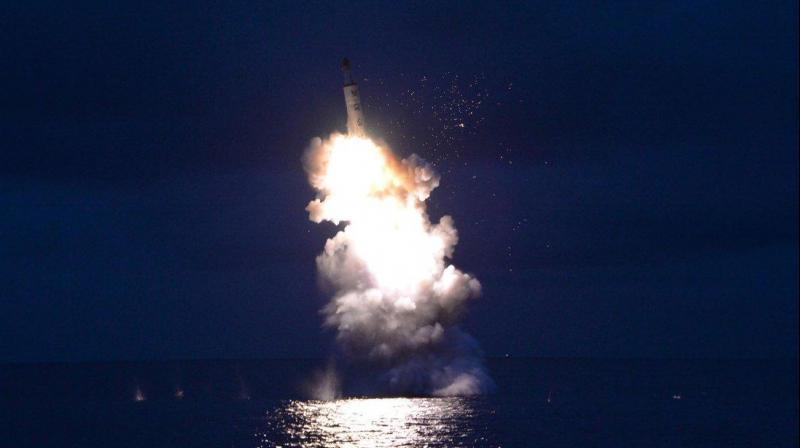North Korean expert says failure of launch indicative of new systems test

Washington: The latest North Korean missile launch may have been of a new and hitherto unknown system being developed by Kim Jong-Un's regime, a weapons expert said on Monday.
The Pentagon has not discussed which missile blew up "almost immediately" after launch early Sunday from near Sinpo on the North's east coast, and the White House has said only that it was a medium-range device.
John Schilling, a weapons expert with the 38 North monitoring group, said the launch failure was indicative of a new systems test.
"The discussion of it failing very early in launch, that's a common failure mode for North Korean missiles very early on in their development cycle when they are working out the bugs in the propulsion and guidance system," Schilling told AFP.
"More detail would always be nice, but I am going to suspect that this was a new missile or certainly one that has not been well-developed."
Schilling thought the test could have been of a new design that Kim showed off in a massive military parade Saturday in Pyongyang.
That missile was being carried on a Musudan intermediate-range ballistic missile transporter, but was a different type of device, Schilling said.
"It was a two-stage missile that looks somewhat like a two-stage version of their KN-08 ICBM mockups," Schilling said, referring to the intercontinental ballistic missile North Korea is also developing.
"That's something that we've never seen tested. If they are trying to demonstrate that as a real capability, it would make sense for them to test it as soon as possible after showing it to the world."
Susan Thornton, acting assistant secretary of state for East Asian and Pacific affairs, said it was difficult to glean much information given how quickly the rocket failed.
"Our understanding is that it was not one of the longer range missiles that they were trying to test there. It was something like a medium-range ballistic missile but still with prohibited technology, but it's still an object of ongoing discussion," Thornton said.
Sunday's launch failure led some observers to speculate that US hacking efforts might have played a role.
The New York Times last month reported that under former president Barack Obama the US stepped up cyber attacks against North Korea to try to sabotage its missiles before launch or just as they lift off.
Britain's former Foreign Secretary Malcolm Rifkind told the BBC "there is a very strong belief that the US -- through cyber methods -- has been successful on several occasions in interrupting these sorts of tests and making them fail."
But Schilling said the ability to hack North Korea's missiles is overblown. "From what we know of North Korean missiles, the propulsion technology in particular is fairly primitive with no digital or electronics to be hacked," said Schilling said.
The 38 North program is part of the US-Korea Institute at Johns Hopkins University in Washington.

